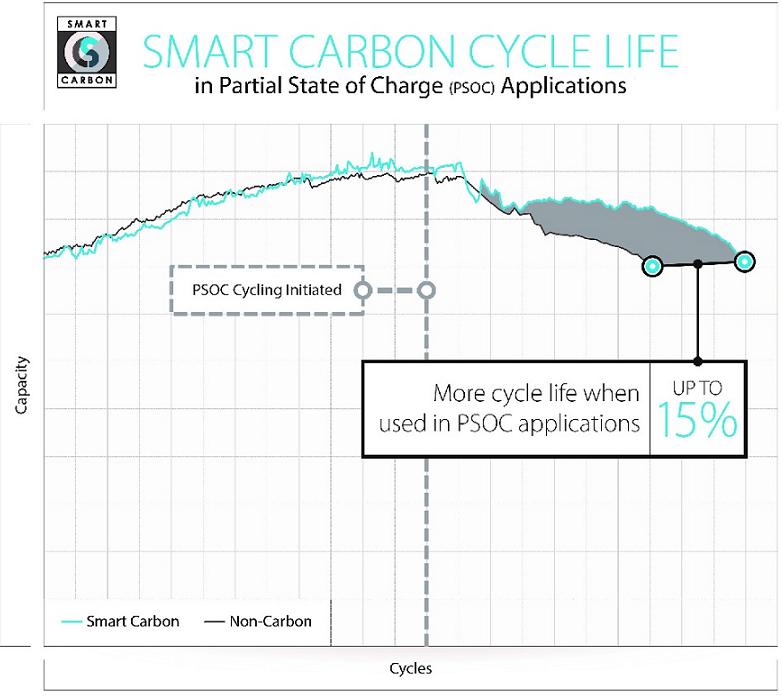To address the impact of Partial State of Charge (PSOC) on cycling batteries in renewable energy (RE), inverter backup, and telecom applications, Trojan Battery Co. has announced the addition of Smart Carbon as a standard feature to its Industrial and Premium flooded battery lines.

Trojan says it smart carbon batteries provide up to 15% more cycle life than batteries without the material.
Smart Carbon is a proprietary Trojan formula which provides improved performance when the batteries operate in PSOC, enhancing overall battery life in off-grid and unstable grid applications where the batteries are under charged on a regular basis. Along with increased life in a partial state of charge, Trojan’s Smart Carbon proprietary formula also provides improved charge acceptance and faster recharge in PSOC applications.
The developer says it understands that batteries used in harsh RE, telecom, and inverter backup systems are regularly cycled at PSOC due to the intermittency of solar generation, an unstable grid or to minimize operating costs of a hybrid Charge-Discharge-Cycle system. Operating at PSOC can quickly diminish the overall life of a lead-acid battery, which results in frequent and costly battery replacements. With batteries now being one of the most expensive components of these systems, it is critical to maximize the life of the battery bank to reduce total cost of ownership. To address the issue of PSOC, Trojan’s engineering team developed the Smart Carbon advanced lead-acid formula to enhance life and performance of Trojan batteries operating in PSOC.
“Trojan’s engineering team has spent more than five years in research and development experimenting with many types of carbon to ensure the right formula to successfully address PSOC,” said Bryan Godber, senior vice president of global market development at Trojan Battery. “While most carbon-additive research has focused on VRLA batteries for start-stop automotive applications, Trojan’s focus has been on the addition of carbon to deep-cycle flooded batteries for stationary applications in off-grid and unstable grid locations. Trojan is committed to these market segments and will continue to be an innovative leader in the energy storage space.”
Trojan chose to add Smart Carbon first to its deep-cycle flooded batteries because flooded technology is the most widely used in off-grid and unstable grid applications globally due to its cycling performance, ability to withstand harsh conditions, widespread availability and economical price point.
PSOC is a reality for most off-grid and unstable grid RE systems since solar panels used in these applications are frequently undersized, resulting in the consistent undercharging of the battery bank. The same is true due to intermittent weather conditions or placement of solar panels in shady areas, which affect the solar panels’ ability to collect and store enough energy to fully recharge batteries.
PSOC is also common in inverter backup systems where batteries are used when the grid goes down. Because the grid in many regions of the world goes down several times a day, or is only available a few hours a day, deep-cycle batteries are under charged on a regular basis, resulting in diminished life of the battery.
Telecom applications which operate off-grid, rely on an unstable grid, or depend on a hybrid RE battery CDC system for power face the same PSOC issues as does solar. The same is true for hybrid telecom applications that are powered by diesel generators, which serve as the main charging source for the battery bank. In many diesel generator installations, the system is often set up to leave the batteries in a partial state of charge to minimize fuel costs, once again resulting in batteries operating in PSOC conditions and shortening the life of the battery bank.
Trojan Battery Company
Filed Under: Energy storage, News




